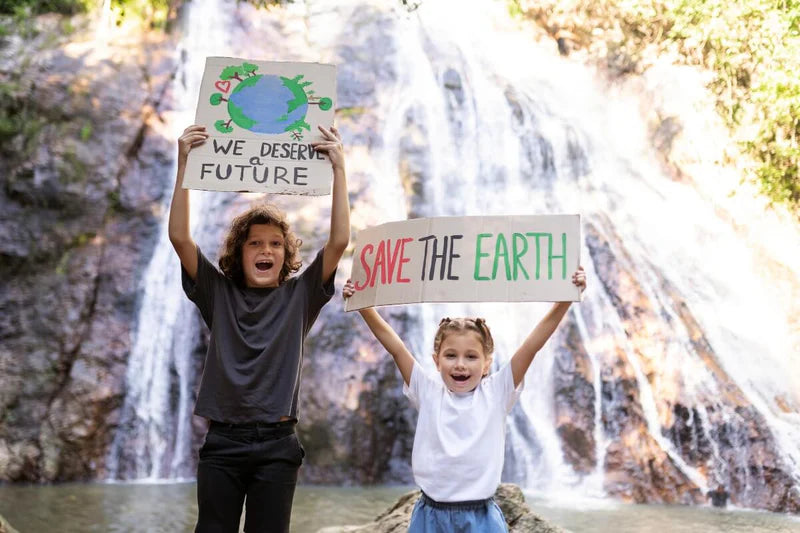
Montessori Earth Day Activities for Kids: Fun and Educational Perspective
Share
Earth Day is more than just a day on the calendar; it's a reminder to celebrate our beautiful planet and teach our little ones how to care for it. Montessori education follows this idea wholeheartedly. This way, it encourages children to connect with nature, explore their environment, and develop a sense of responsibility for the Earth.
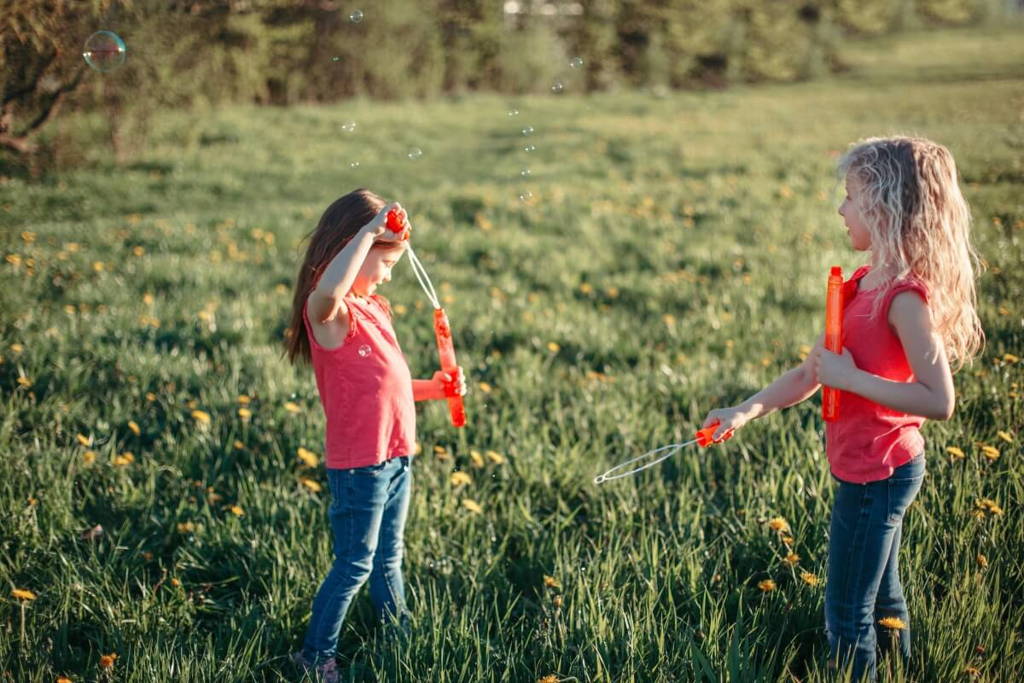
Montessori believes that learning about the environment shouldn't be a boring lecture; it should be an adventure. Hands-on activities, outdoor exploration, and creative projects help children truly understand the importance of sustainability and become passionate stewards of our planet.
So, let's roll up our sleeves, put on our explorer hats, and get into some fun and educational Earth Day activities.
Litter Hikes: Cleaning Stuff Up
Why not turn a nature walk into a cleanup mission? Grab a pair of gloves and a trash bag, and head out to your local park, beach, or hiking trail. As you stroll, encourage your little one to help pick up any litter they find.
This simple activity teaches kids about environmental responsibility and the importance of keeping our outdoor spaces clean and healthy. They'll also get some exercise and fresh air while appreciating the beauty of nature. Plus, they'll feel proud of themselves for making a difference.
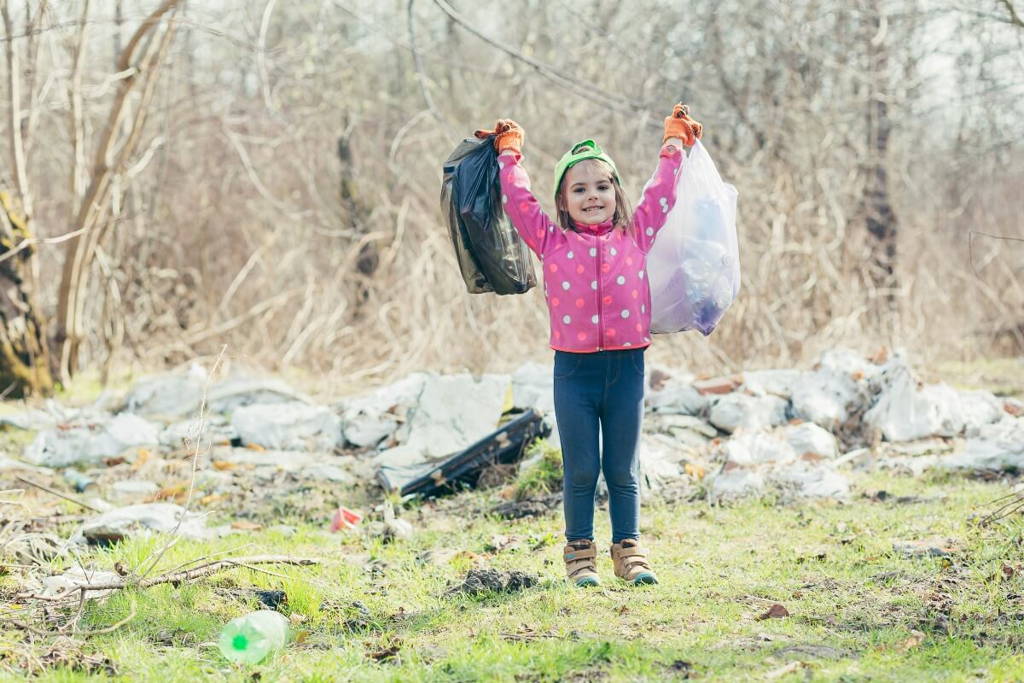
For an extra touch of Montessori, consider using a child-sized Montessori cleaning set.
Composting Basics: Transforming Waste into Wealth
Composting is like magic; it turns kitchen scraps and yard waste into nutrient-rich soil that helps plants grow big and strong. This is a fantastic activity to teach kids about recycling and the natural cycle of life.
Start by setting up a small compost bin in your backyard or balcony. Explain to your child how food scraps, leaves, and other organic materials decompose and turn into "black gold" for your garden. Let them help you add scraps to the bin, turn the compost pile, and even use the finished compost to nourish your plants.
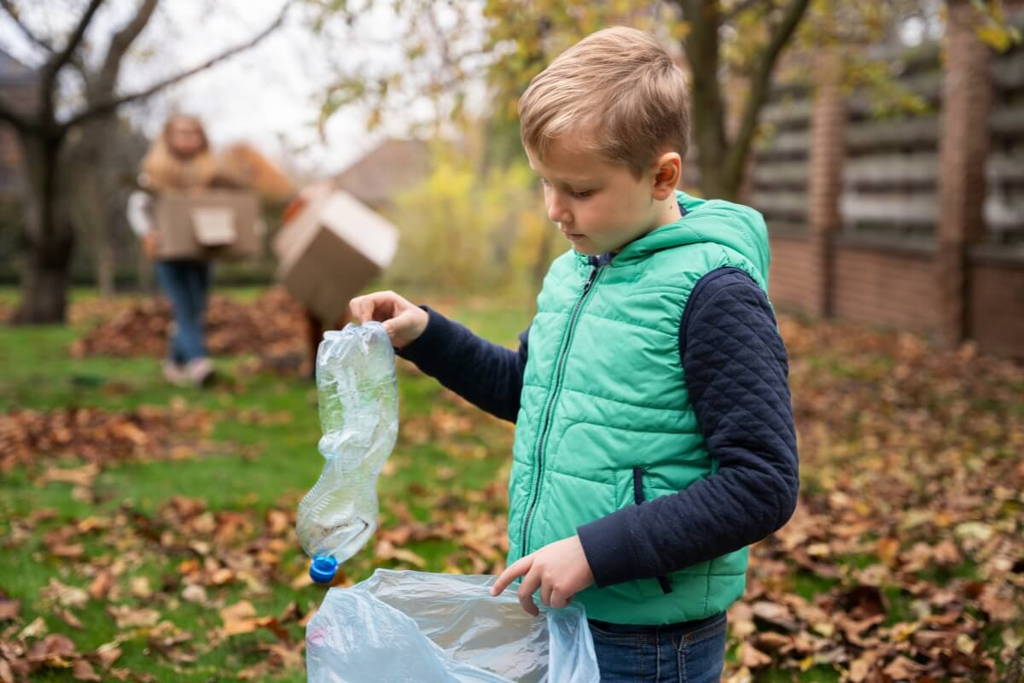
This hands-on experience makes your kid focus on a sense of wonder and appreciation for the natural world.
Creating Miniature Watersheds: Understanding Water Cycles
Now, here comes the real science experiment that's both fun and educational. You should consider building a miniature watershed. This hands-on activity helps children understand the fascinating water cycle and the importance of water conservation.
Gather a few simple materials: a large plastic container, some soil, rocks, and a small watering can. Help your child create a landscape inside the container, complete with hills, valleys, and a "riverbed."
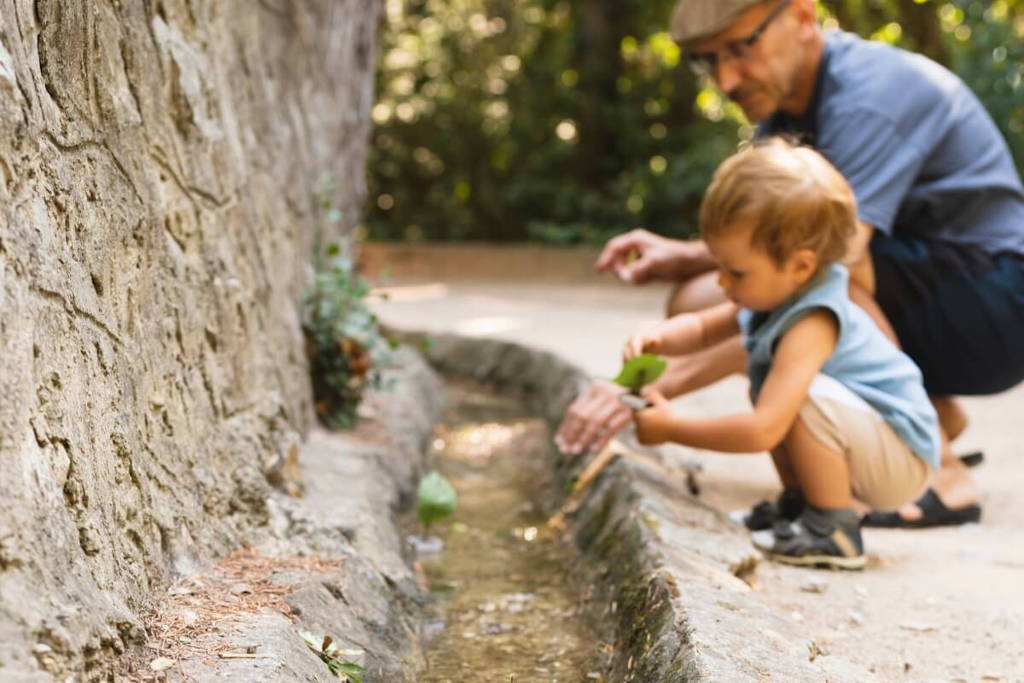
Then, let them use the watering can to simulate rainfall and watch how the water flows through the landscape, collecting in the "river" and eventually evaporating.
This interactive activity brings the water cycle to life, making it easier for young minds to grasp this important natural process. It also sparks interest in water conservation and our ecosystems.
Organizing Scavenger Hunts
Turn your neighborhood or local park into a thrilling adventure with a nature scavenger hunt. Create a list of things for your little one to find, like a red leaf, a pinecone, or a smooth rock. If you want to make things interesting, you can hide some wooden Montessori toys for them to find.
Then, encourage your child to use their senses to explore their surroundings and check off each item on their list.
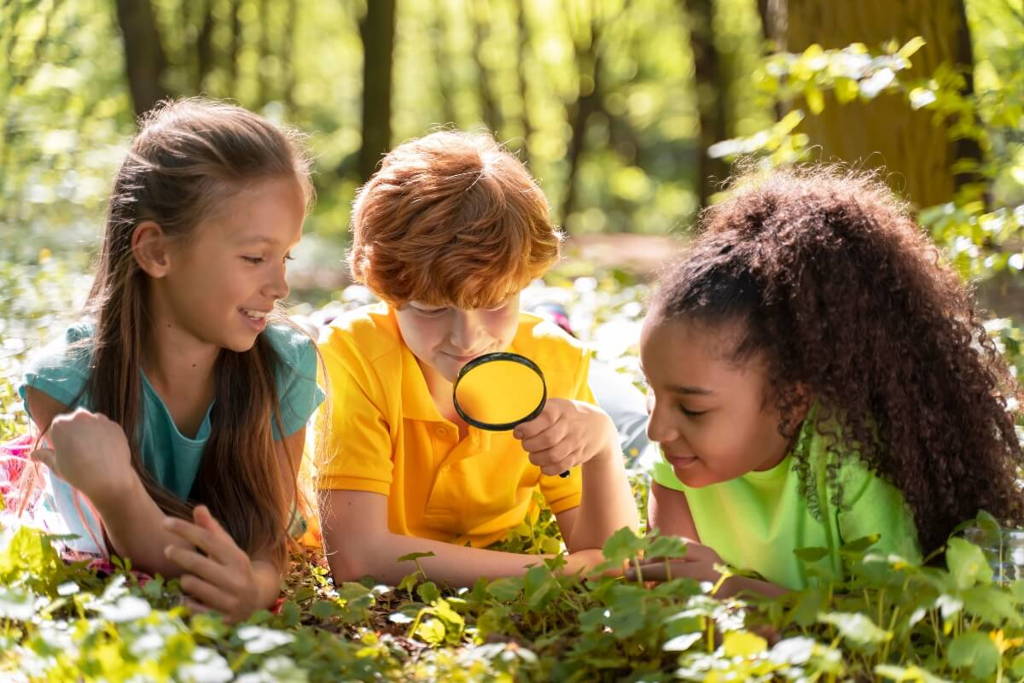
Scavenger hunts are a fantastic way to get kids excited about nature and learn about the plants and animals that share their environment. They'll be sharpening their observation skills and expanding their vocabulary.
Making Seed Jars
Planting seeds is a magical experience that connects children to the natural world and teaches them about the wonders of growth and transformation. So why not create a seed jar together?
Gather a few clear jars or containers, some potting soil, seeds of your choice, and some decorative materials like ribbons or stickers. Help your little one fill the jars with soil, plant the seeds, and water them gently. Decorate the jars to make them extra special, and place them in a sunny spot.
As the seeds sprout and grow, your child will witness the miracle of life firsthand. They'll learn about patience, responsibility, and the importance of nurturing our planet.
Planning Small Gardens
Gardening is a wonderful way to connect children with nature and teach them about where food comes from. Even if you don't have a big backyard, you can create a small garden on your balcony, patio, or even a windowsill.
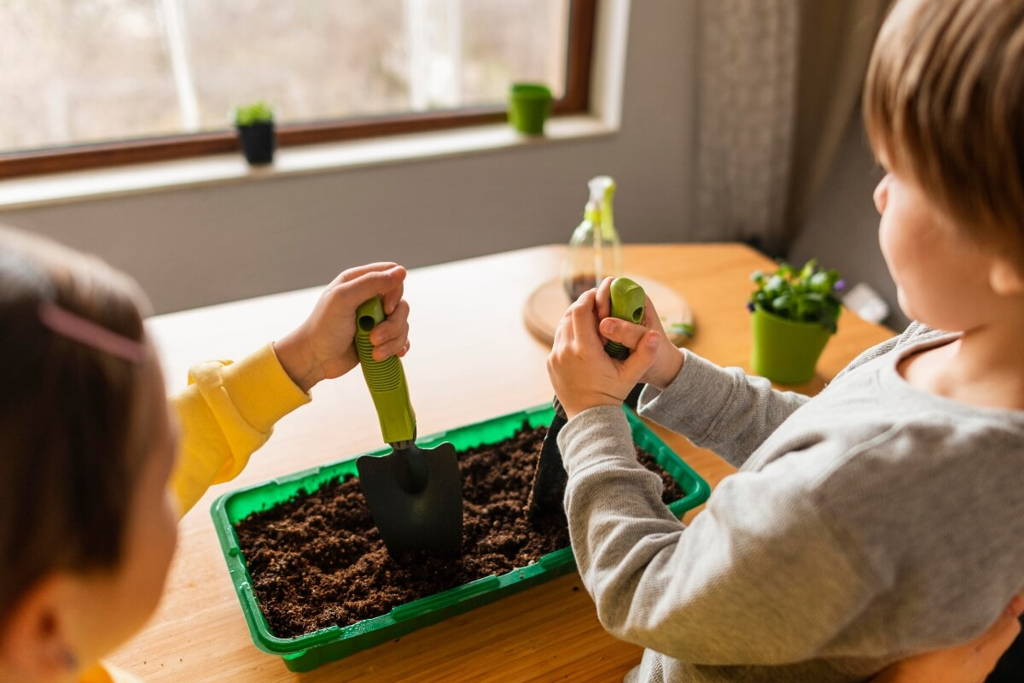
Involve your child in the planning process. Get yourself a Montessori vegetable set and let them help you choose what to plant. Together, you can prepare the soil, plant the seeds or seedlings, and water them regularly.
As the garden grows, your child will learn about responsibility, patience, and the importance of caring for living things. They'll also gain a deeper appreciation for their food and the natural world around them.
Recycling Crafts
Turn trash into treasure with some creative recycling crafts. Gather up empty cardboard boxes, plastic containers, bottle caps, and other recyclable materials. Then, let your little one's imagination run wild!
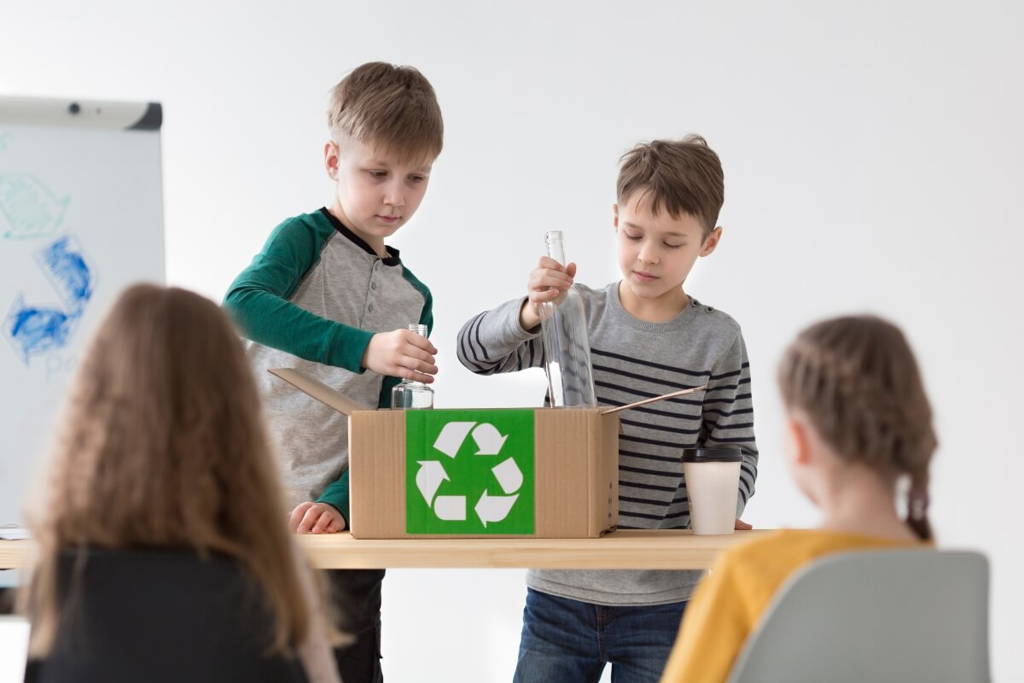
They can transform those empty boxes into colorful animal masks, create a robot out of plastic bottles, or design a masterpiece with bottle cap stamps. Recycling encourages creativity, problem-solving, and fine motor skills development while teaching your kid about sustainability and reducing waste.
Nature Exploration: Engaging with the Outdoors
Sometimes, the simplest activities are the most impactful. Encourage your child to explore the natural world around them, whether it's a park, a forest, or even your own backyard. And don’t forget to bring your eco-friendly Montessori Toys when you explore.
Let them dig in the dirt, collect leaves and rocks, observe insects, and listen to the birds singing. Nature exploration fosters a sense of wonder and appreciation for the environment while also providing opportunities for sensory play, physical activity, and cognitive development.
Conclusion:
Earth Day is a reminder that caring for our planet is a year-round responsibility. Through Montessori-inspired activities, we can empower our children to become passionate about protecting the Earth.
These hands-on experiences foster a sense of wonder, responsibility, and connection to the natural world, inspiring a lifelong love for our planet.
